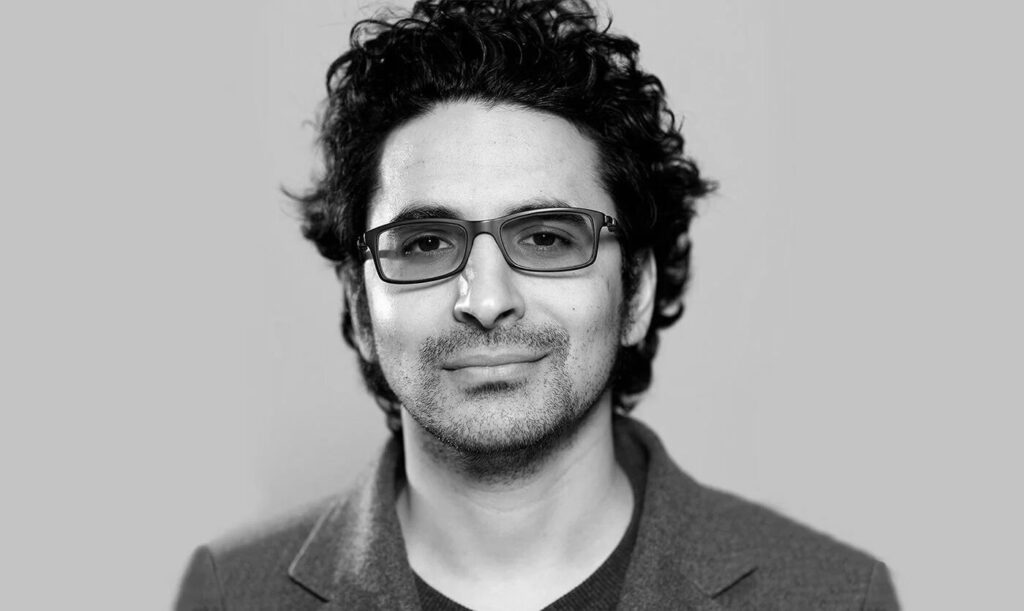Past and Present Collaborators
- Mounia Akl
- Nathalie Álvarez Mesen
- JAN BUJNOWSKI
- Anca Damian
- Bassel Gandhour
- Ognjen Glavonić
- Magnus von Horn
- Nicole Jaramillo
- Boo Junfeng
- Etienne Kallos
- Alexa Karolinski
- AnnA Llargués
- Pia Marais
- Valerie Massadian
- Călin Peter Netzer
- Susana Nobre
- Valérie Osouf
- Adina Pintilie
- Łukasz Ronduda
- Marcela said
- Petr VAclav
- Eirini Vianelli
- Said Zagha
Mounia Akl is a Lebanese director and writer based in London. She earned her MFA from Columbia University in New York, after studying Architecture in ALBA, Beirut and is a member of the Academy of Motion Picture Arts and Sciences®️. Her debut feature, COSTA BRAVA, LEBANON, inspired by her short SUBMARINE (Cannes 2016), premiered at the 2021 Venice Film Festival, TIFF, and BFI London, winning the Audience Award. It was released in the US by Kino Lorber and later on Netflix. She developed the script through the Sundance Labs, Cannes Cinéfondation Residency, and Torino Film Lab. Her second feature film HOLD ME IF YOU WANT is in development.
In TV, she has directed episodes of THE RESPONDER starring Martin Freeman, BOILING POINT starring Stephen Graham, created by ADOLESCENCE’s Phil Barantini, and HOUSE OF GUINNESS with Netflix created by Stephen Knight. She is also developing her own TV series YES WE DO set in Spain.
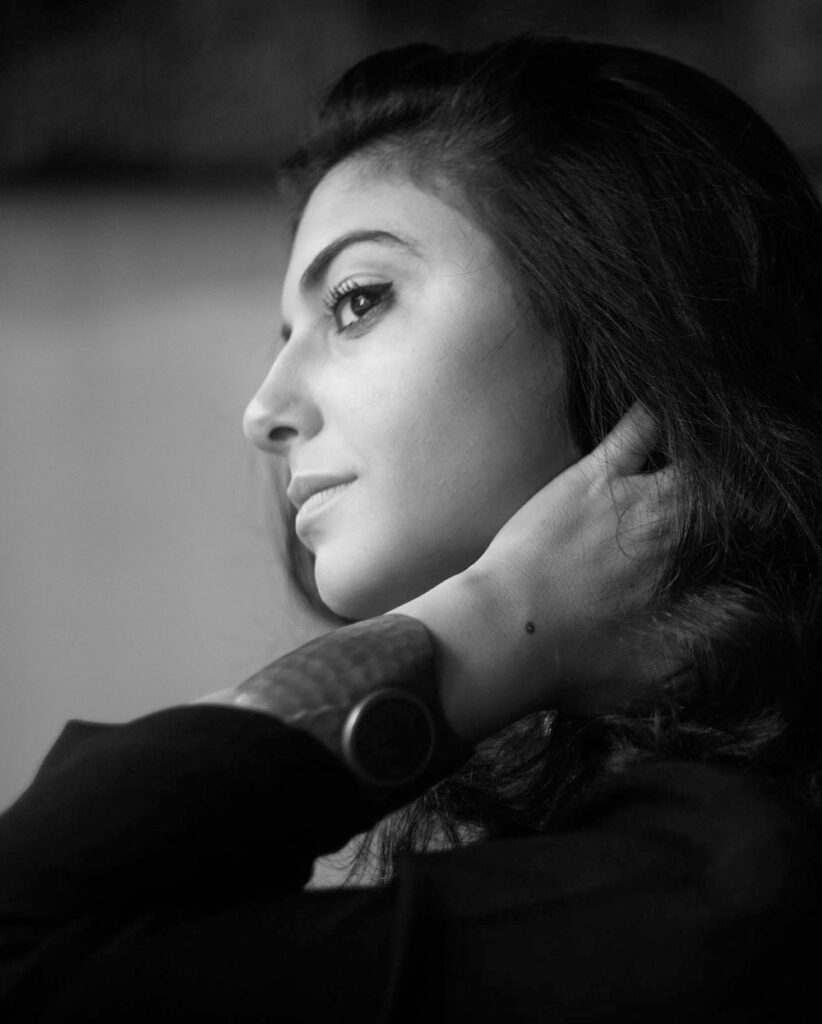
Nathalie Álvarez Mesén is a Costa Rican-Swedish screenwriter/director. Her debut feature film CLARA SOLA premiered in Cannes 2021 in the Directors’ Fortnight section.
She started her career in physical theater in Costa Rica before pursuing her B.F.A. degree in Mime Acting at the Stockholm University of the Arts in Sweden. Nathalie later graduated from Columbia University’s Graduate Film Program in NYC with an M.F.A. in Directing & Screenwriting.
An alumna of the Berlinale Talents, TIFF Filmmaker Lab and NYFF Artist Academy, Nathalie’s shorts have screened at film festivals all over the world. Her short, FILIP, won Best Film Under 15 Minutes at the 2016 Palm Springs Shortfest, and ASUNDER, screened at the 2016 Telluride Film Festival.
Nathalie also co-wrote ENTRE TÙ Y MILAGROS, winner of the Orizzonti Award for Best Short in the Venice Film Festival 2020.
Recently, she directed an episode for Showtime’s THREE WOMEN, premiering the fall of 2024.
She’s currently shooting her second feature, THE WOLF WILL TEAR YOUR IMMACULATE HANDS, starring Alexander Skarsgård.
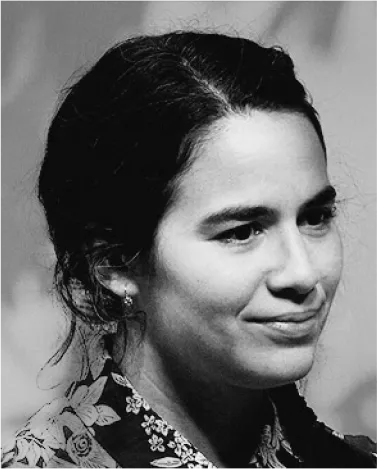
Graduate of The Polish National Film, Television and Theatre School in Łódź and currently a Ph.D. student and lecturer there. Previously studied journalism and art history at the University of Warsaw.
His short film THE DEVIL received a special jury mention at Clermont-Ferrand International Short Film Festival in 2023 and was also screened at more than 60 festivals around the world, including festivals such as International Short Film Festival Oberhausen or ZINEBI.
His second short film DANCING IN THE CORNER was premiered in Semaine de la Critique section of the Cannes Film Festival in 2024.
He is currently developing his next short film, BOBIK, co-produced by Kijora Film and Gaïjin.
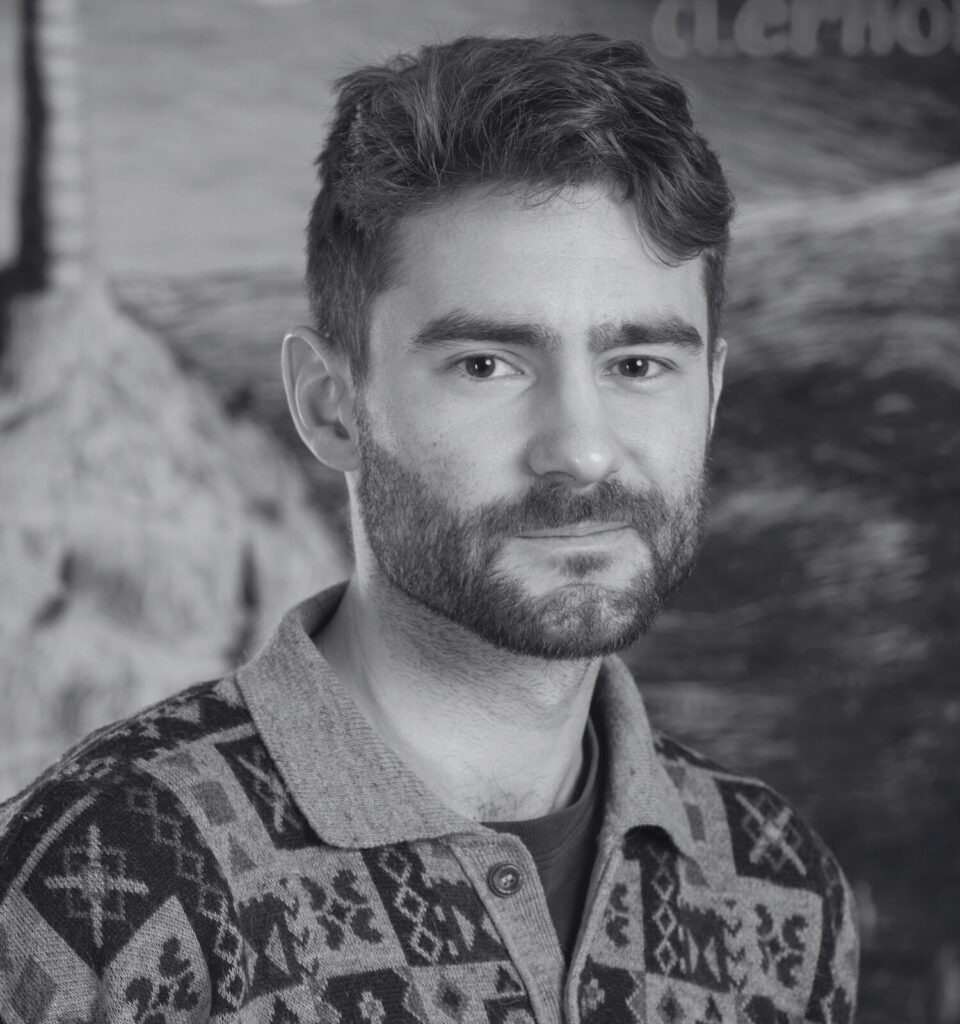
Anca Damian is a Romanian filmmaker renowned for her innovative blend of animation and documentary storytelling.
Born in Cluj-Napoca in 1962, she studied cinematography at the Bucharest National University of Theatre and Film and holds a PhD in Cinema and Media Arts.
Damian’s acclaimed works include CRULIC – THE PATH TO BEYOND (2011), which won the Cristal for Best Feature Film at the Annecy International Animated Film Festival, and MARONA’S FANTASTIC TALE (2019), a poignant animated drama about a dog’s life and its unconditional love for its owners.
Her 2018 film MOON HOTEL KABUL earned her the Best Director award at the Warsaw International Film Festival.
Damian continues to explore complex themes through her films, including her upcoming project, STARSEED, focusing on albinism.
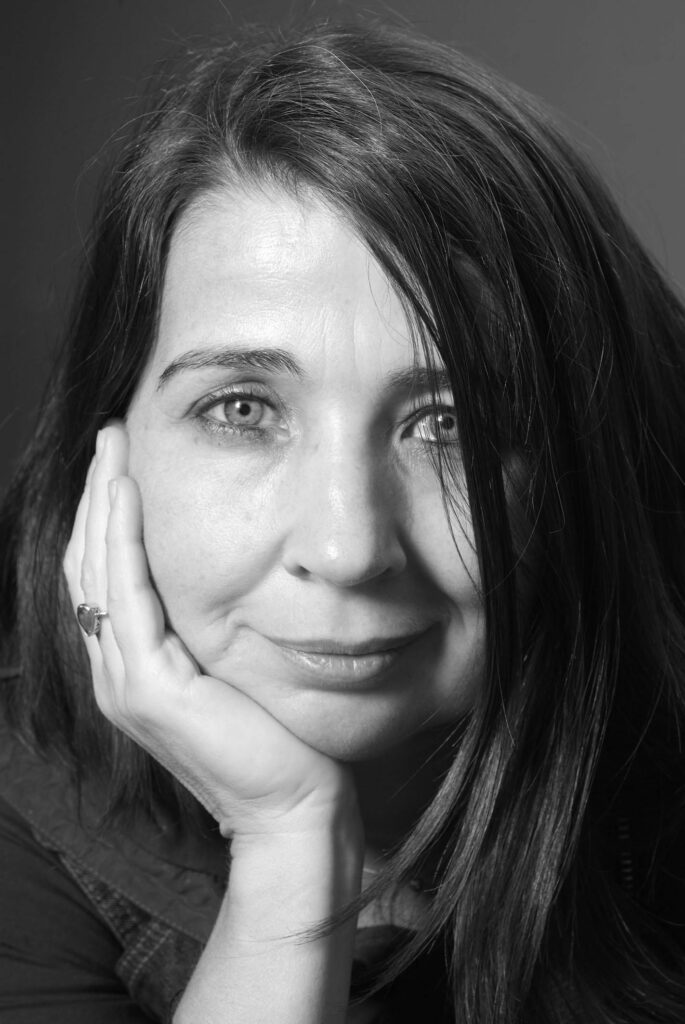
Born in Jerusalem and raised in Ramallah, Palestinian-British screenwriter and director Said Zagha studied at Kenyon College (Ohio) and the London Film School.
His most recent short film COYOTES got selected at Orizzonti Short Films Competition at the 82nd Venice International Film Festival, Sitges Film Festival, AFI Fest and many other festivals worldwide. It also won Best Short at BFI London.
Previously, Said directed the first two episodes of CRASHING EID, a Netflix miniseries set in Saudi Arabia. The series appeared in Netflix’s global Top 10 across more than 32 territories and remained there for over eight weeks.
His earlier short films, LOVESICK IN THE WEST BANK (2021) and FIVE BOYS AND A WHEEL (2016), screened widely on the international festival circuit, including at Academy-qualifying festivals such as Tampere and Urbanworld. Said is a 2020 Berlinale Talents alumnus.
He is currently developing his first feature film, WEEDESTINE, which got support from Doha Film Institute, Red Sea Fund, Jordan Film Fund and the Arab Fund for Arts and Culture.
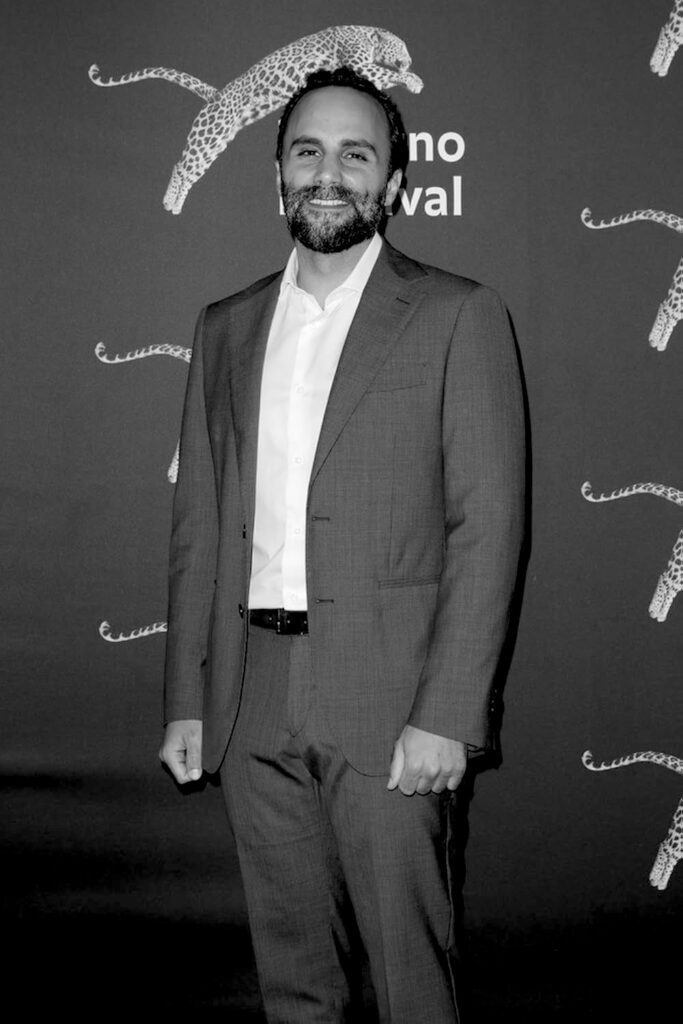
Ognjen Glavonić was born in 1985 in Pančevo, Yugoslavia. He studied at the University of Fine Arts in Belgrade, graduating in filmmaking in 2011. He is co-founder of Non-Aligned Films and the Pančevo Film Festival in Serbia.
His student short films ŽIVAN PUJIĆ JIMMY, RYTHM GUITAR, BACKING VOCAL and MADE OF ASHES have been widely acclaimed.
ŽIVAN MAKES A PUNK FESTIVAL, his first feature-length documentary, received its world premiere at the 2014 Festival Cinéma du Réel. It subsequently screened at over 50 international festivals, including IFF Rotterdam (2015), IndieLisboa (2015), CPH:DOX (2014). His second documentary film Depth Two, was presented at the Berlinale Forum in 2016. and screened at more than 70 international festival, winning 20 awards.
THE LOAD, his third feature and first fiction film, was presented at the Directors’ Fortnight in 2018, before traveling to over 90 festivals around the world. It was distributed in France by Nour Films, under the title TERET.
His next feature, IN THE SHADOWS OF THE HORNS, is in pre-production.
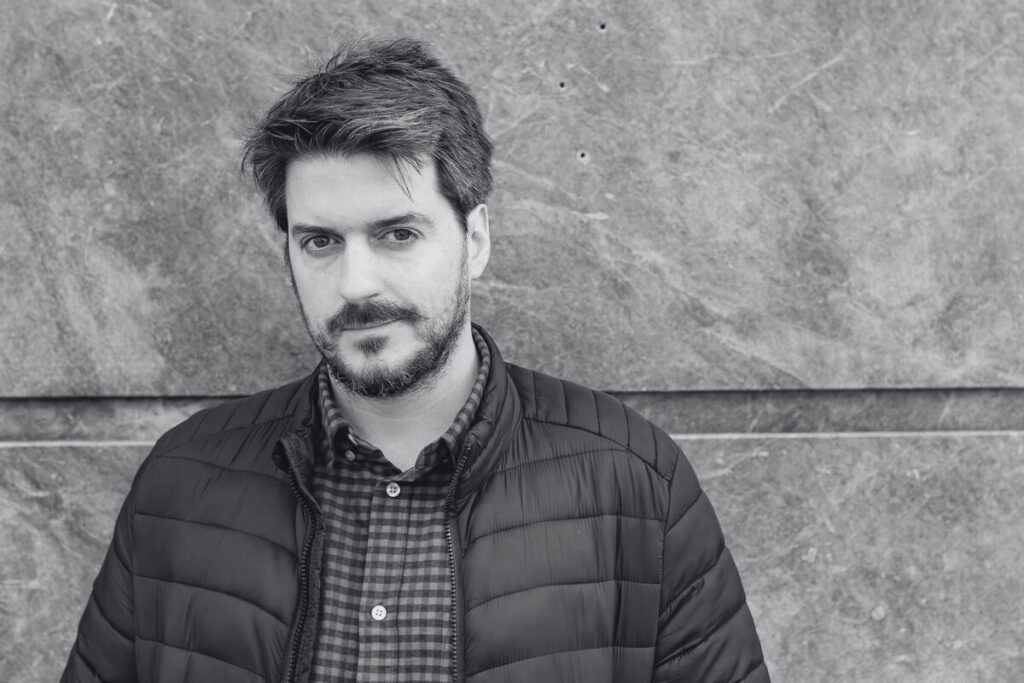
Magnus von Horn, born on December 21, 1983, in Gothenburg, is a Swedish-Polish film director and screenwriter known for his bold and psychologically intense storytelling.
After moving to Poland, he studied at the renowned National Film School in Łódź, graduating in 2013.
A traumatic robbery shortly after his arrival sparked a deep interest in themes of violence and human behavior, which became central to his early work.
His first project was a short documentary focusing on a young Polish criminal, setting the tone for the raw and intimate style he would later refine. In 2011, his short film Without Snow earned a Guldbagge Award nomination for Best Short Film.
Von Horn’s feature debut, The Here After, premiered in the Directors’ Fortnight at the 2015 Cannes Film Festival, earning critical praise for its stark portrayal of guilt and reintegration.
His second film, Sweat, was selected for the 2020 Cannes lineup, though the festival was ultimately cancelled due to the pandemic.
Most recently, his third feature, The Girl with the Needle, premiered in competition for the Palme d’Or at the 2024 Cannes Film Festival, cementing his reputation as a filmmaker of striking vision and emotional depth. The film was also nominated for both an Oscar and a Golden Globe in the Best International Feature category.
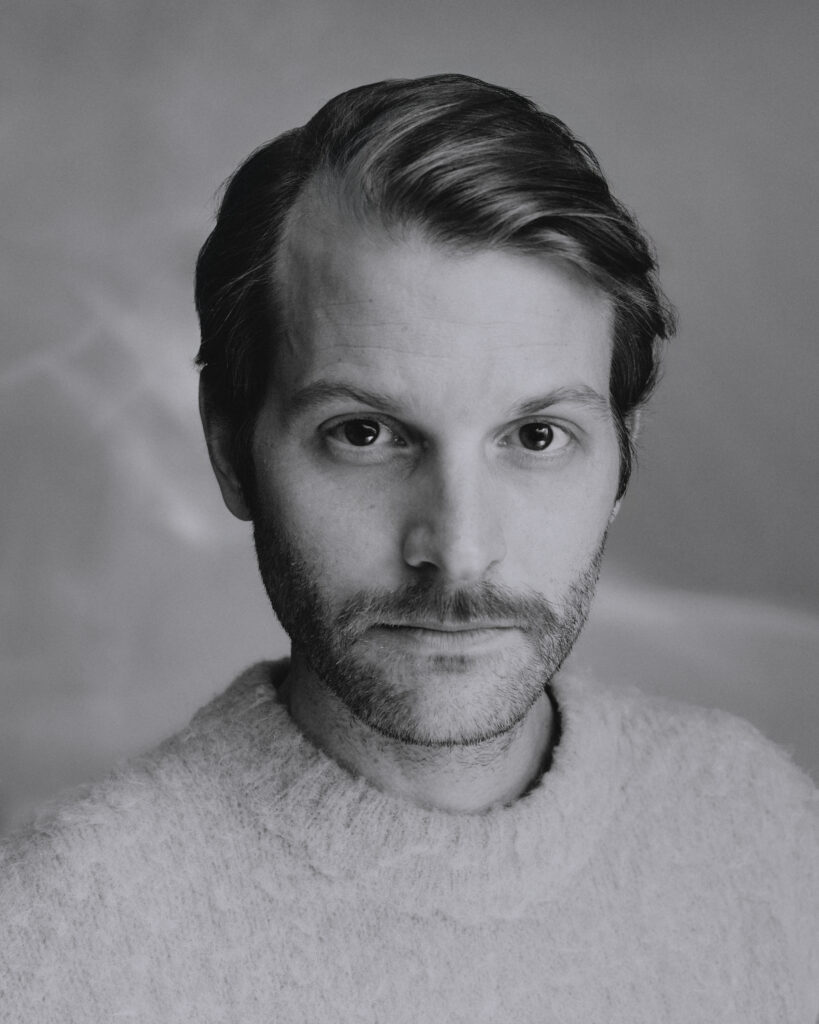
Nicole Jaramillo was born in Panama and currently splits her time between Paris and Madrid, where she balances her career as a writer with her work as an advertising executive.
Her creative journey began over fifteen years ago when she moved to Spain, a country where she knew no one. Writing became a vital outlet for her, providing a space to both unburden herself and engage with the world around her.
In addition to her literary pursuits, Jaramillo has built a successful career in advertising, where she writes and produces slogans, visual elements, and video spots for communications agencies.
In 2019, she published her first novel, Acepto ser yo, an autofiction told in the first person that explores themes of coming out, immigration, and self-acceptance.
As she began writing her second novel, Jaramillo’s desire to direct emerged as a natural extension of her storytelling. This led to the creation of her first short film, PESCA, a project produced by Gaïjin, that was conceived through imagery rather than words, reflecting her struggle to articulate the film’s themes through text alone. She shot PESCA in June 2024, with the support of ICAA and CNC.
Nicole Jaramillo continues to explore the intersections of her creative passions, bringing a unique perspective to both literature and film.
SECOND BREATH will be her first feature film.
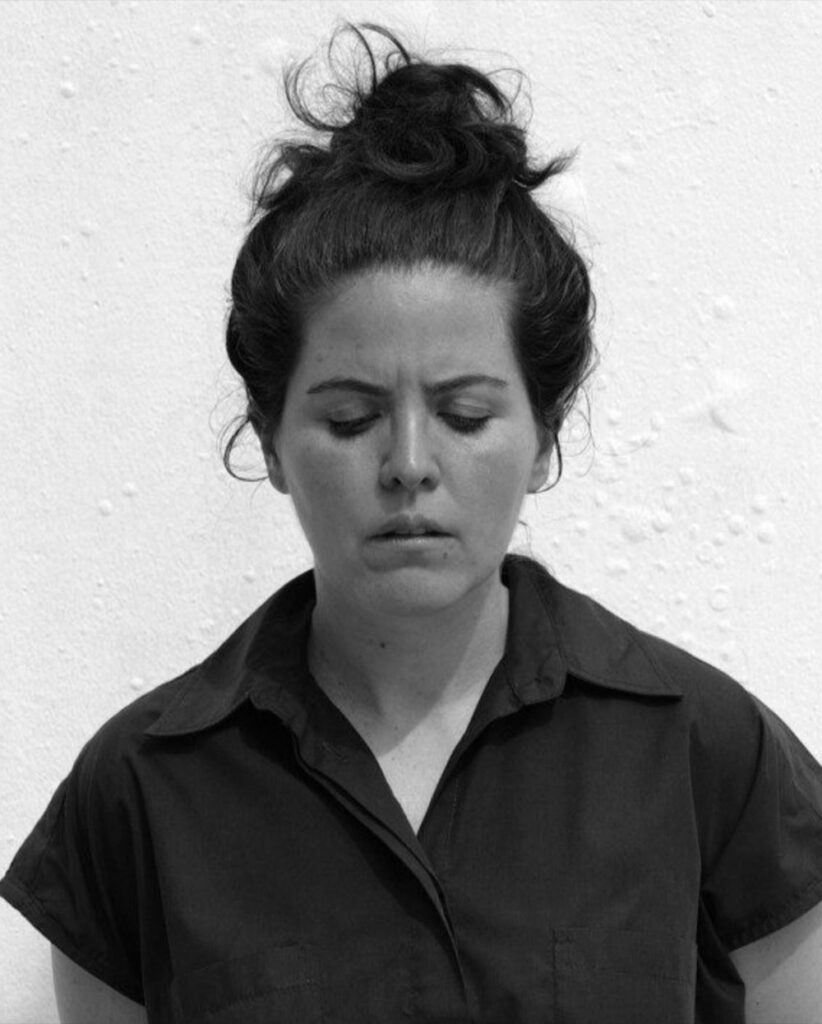
Boo Junfeng trained in film schools in Singapore and Spain before making award-winning short films such as KATONG FUGUE (2007) and KELUAR BARIS (HOMECOMING), both of which were at Clermont-Ferrand Short Film Festival. His 2009 short TANJONG RHU premiered in Berlin Panorama.
In 2010, his directorial feature debut SANDCASTLE (2010) was selected at Cannes Critics’ Week, and was screened at Toronto, London, Busan and others. He also contributed the short PARTING for the SG50 commemorative film 7 LETTERS, which premiered at Busan Film Festival in 2015. APPRENTICE (2016), his second feature, premiered at Cannes in Un Certain Regard and screened at 80 festivals, winning prizes at Busan, Fribourg, Taipei Golden Horse and others. It was Singapore’s official entry to the Academy Awards’ Best Foreign Language Film category in 2017.
Boo was the first recipient of the McNally Award for Excellence in the Arts – the valedictorian honour of LASALLE College of the Arts in 2008. He was also accorded the Young Artist Award (2009) by the National Arts Council and the Singapore Youth Award (2011) by the National Youth Council.
In 2018, 2021 and 2025, he served as the Creative Director of Singapore’s National Day Parade.
TRINITY shall be his 3rd feature film.
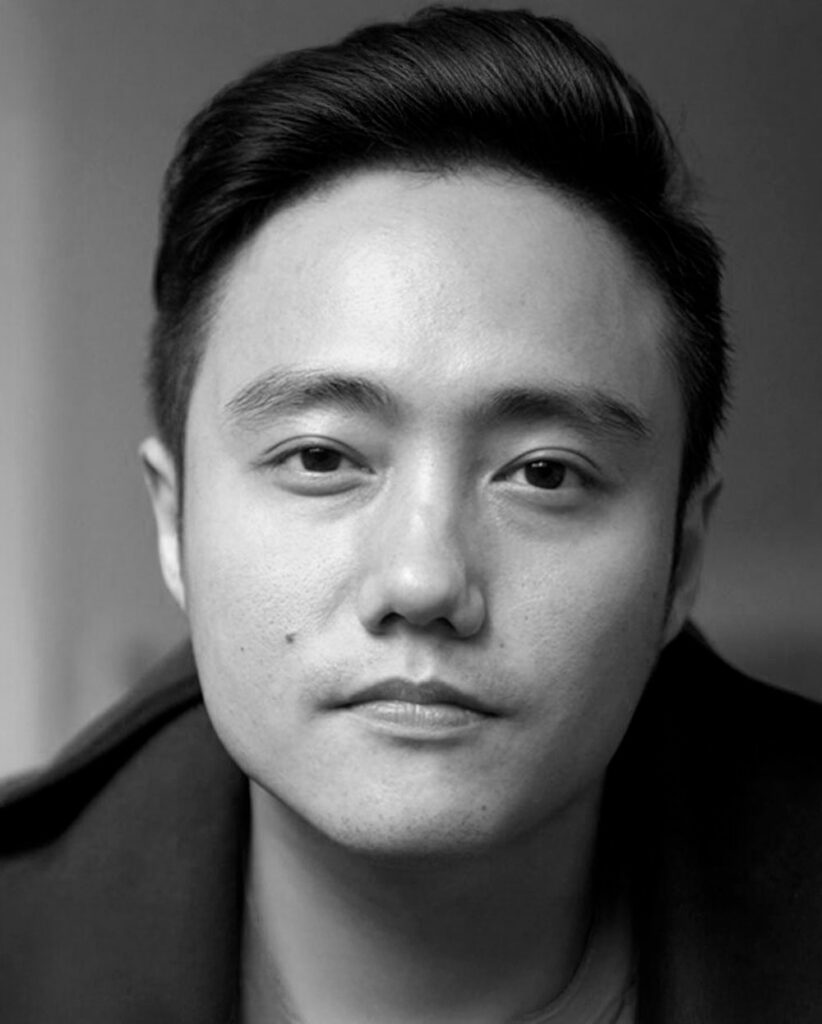
Etienne Kallos is a Greek-South African filmmaker who worked in theater in South Africa, and then as a documentary cameraman in San Francisco, before receiving his masters in film directing from New York University’s graduate film program. His acclaimed short films, such as JANE’S BIRTHDAY TRIP, (2005), NO EXIT (2006), DOORMAN (2007), and FIRSTBORN (2009), have been selected for festivals such as Berlin, Sundance, Slamdance, Telluride and Cannes. In 2009, he won the Golden Lion for ‘Best Short Film’ at the Venice International Film Festival.
In 2018, Kallos wrote and directed a South African feature project DIE STROPERS (The Harvesters), which premiered in Cannes Un Certain Regard before heading to Thessaloniki, San Francisco International and other film festivals. The screenplay was developed at the Sundance Institute’s Screenwriting Lab and the Cannes Cinefondation Residence Program and explores the tension between two orphaned Afrikaans boys vying for affection and identity within a conservative farming community in post-Apartheid South Africa. Accolades for the film include the Sundance/Mahindra ‘Global Filmmaker Award’, ‘Best First Feature’ at the Rome Film Festival and the Gan Foundation’s ‘Prix Opening Shot’ Award.
Currently, Kallos lives in Athens, Greece where he works on a Greek-Albanian narrative feature project, AMERIKI, with development and screenwriting support from Creative Europe Media and the Greek Film Center.
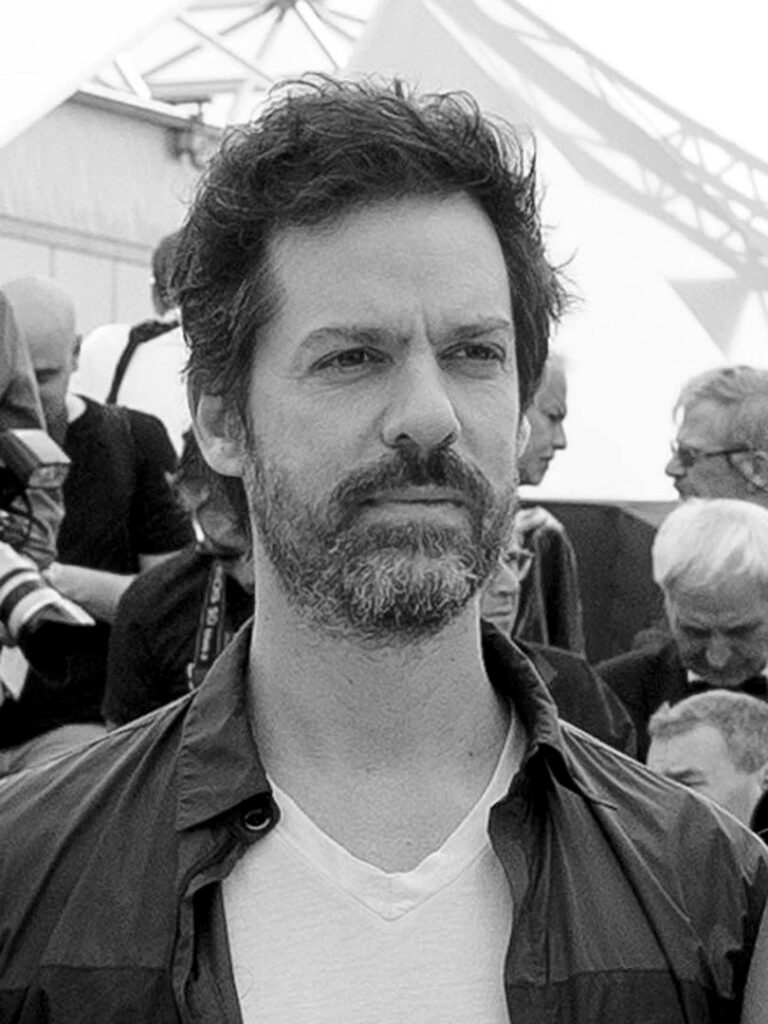
Alexa Karolinski (born 1984, Berlin) is a versatile creator known for her work as an author, director, and producer in various fields including music videos, commercials, installations, film, and television.
Already during her Master in Social Documentary Film at New York’s School of Visual Arts, she worked on the soon-to-be breakthrough film project OMA & BELLA, which debuted at the Berlinale and earned Alexa the prestigious Grimme Prize. Her following documentary LEBENSZEICHEN (2018), a thought-provoking exploration of Jewish and non-Jewish relationships in Germany, also received great critical acclaim and was described by Der Spiegel as « the German-Jewish work of its generation. »
Beyond film and television, Karolinski also creates video installations exhibited in museums and institutions worldwide, such as VIDEO ART SHOW (in collaboration with Ingo Niermann, Auto Italia, London) and ARMY OF LOVE (with Ingo Niermann), co-produced by the 9th Berlin Biennale, the Wiesbaden Biennale, and CCCB (Barcelona).
Karolinski is also the co-creator, co-writer, and producer of the miniseries UNORTHODOX (2020), which made history on Netflix as its first Yiddish production. She received six Emmy nominations, including Outstanding Miniseries and Screenplay, and won the Emmy for Outstanding Directing of a Miniseries. The series was nominated for the BAFTA, the Golden Globes, and many other awards. It won the Grimme Award in the fiction category, the German Television Award, the Independent Spirit Award, and more.
Currently, Alexa is developing her first fiction feature film, THE BOOK OF CHARLOTTE, written with Matthieu Taponier and produced by Telos Pictures, Gaïjin, and Heretic.
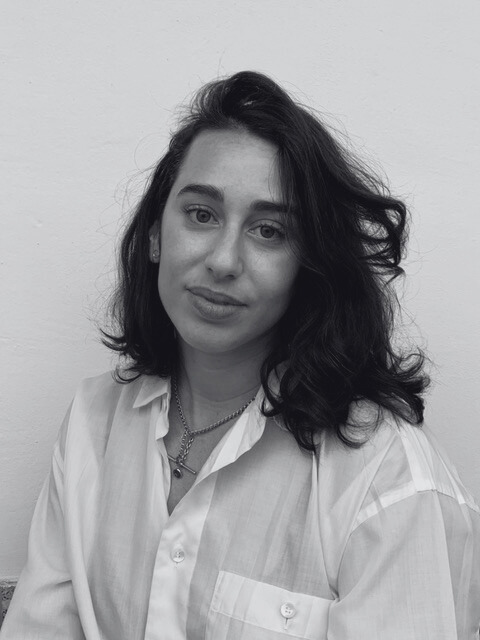
Anna Llargués – Barcelona, 1999 – is a film director and screenwriter who graduated from ESCAC with a specialization in directing and screenwriting, and holds a postgraduate degree in audiovisual editing and montage from BSM-UPF.
Her first short film, Trenc d’alba, had its world premiere at the 76th Cannes Film Festival in the La Cinéf section and its national premiere at the 68th Seminci, where it received a Special Mention – Green Spike Award. The film was selected for around fifty national and international festivals, including D’A in Barcelona, Raindance in London, Atlàntida Mallorca Film Fest, and the Molodist International Film Festival in Kyiv, and was a candidate for the 2024 Goya Awards. It is currently available on the Spanish streaming platforms Filmin and 3CAT.
Anna Llargués is currently developing her debut feature film, De fang, a co-production between Astra Pictures (Spain), Gaijin, and Wonder Maria Filmes (Portugal). The project won the LES ARCS Talents Village 2024 and was selected for the Torino Film Lab – Green Narratives, among other labs and residencies.
She is also working on the post-production of her short film Àvia Peix, co-produced by Astra Pictures (Spain), Coming Soon (Spain), and Gaijin.
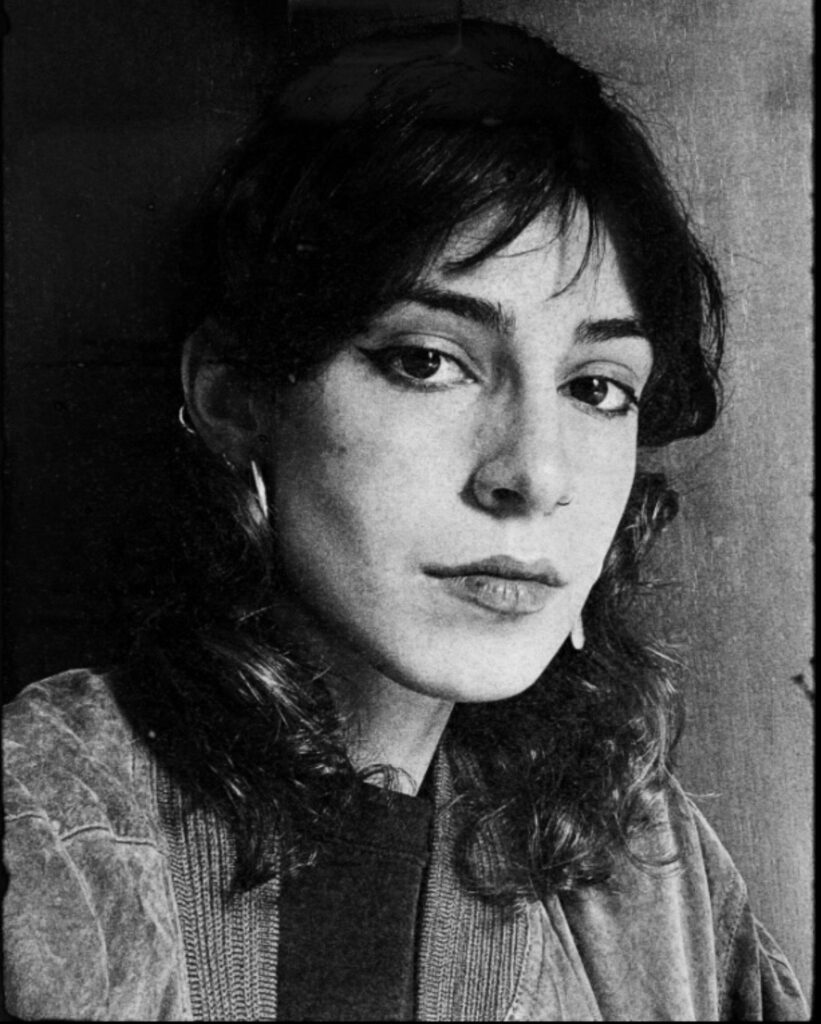
Pia Marais is a South African-Swedish writer and director whose work spans both fiction and documentary cinema. Over the course of her career, she has written and directed four feature films, establishing a distinct voice in international filmmaking.
Her debut feature, THE UNPOLISHED, garnered critical acclaim and was awarded the prestigious Tiger Award at the Rotterdam International Film Festival in 2007. This marked the beginning of a successful festival presence for her work.
In 2010, her second feature, AT ELLEN’S AGE, was selected for the main competition at the Locarno Film Festival and went on to screen at over 30 international festivals, including Toronto.
Marais returned to her roots with LAYLA FOURIE (2013), a suspenseful drama set in South Africa. The film premiered in Competition at the Berlinale and received a Special Jury Mention, further cementing her reputation as a compelling storyteller. Expanding her creative range, she directed her first documentary, CARI COMPAGNI, for Arte in 2018.
TRANSAMAZONIA, in competition at the 2024 Locarno Film Festival, marks her fourth feature film, continuing her exploration of complex narratives and diverse settings.
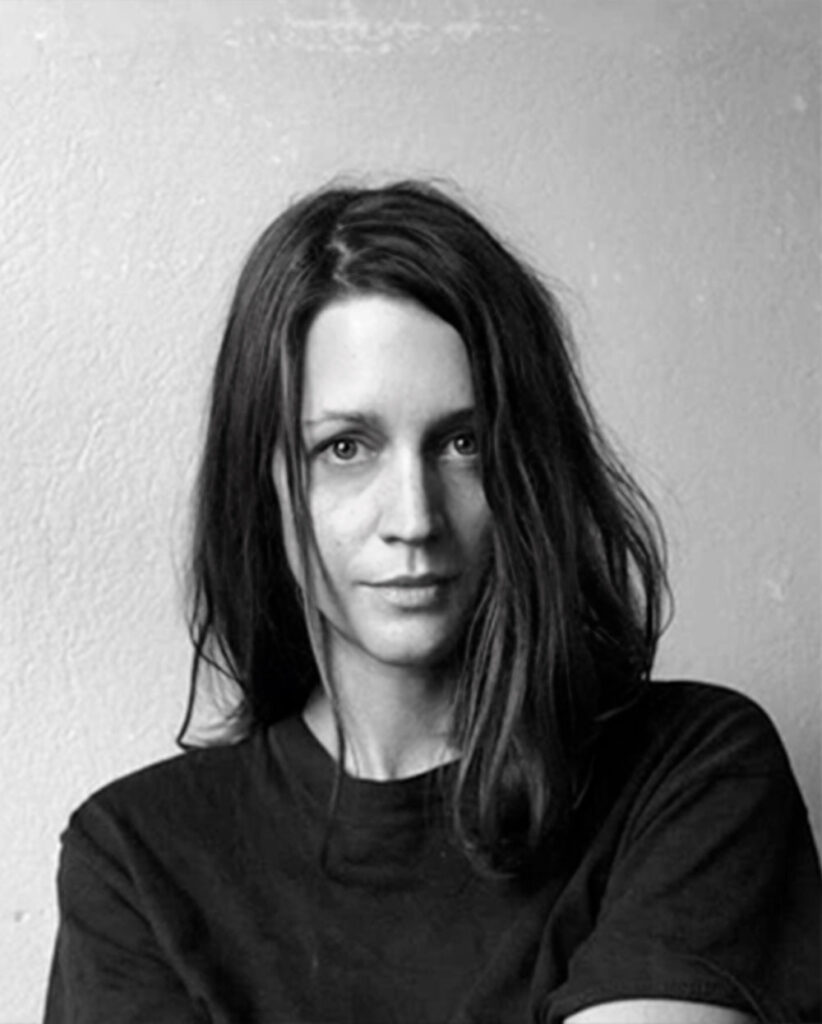
Valerie Massadian is a French-Armenian artist, photographer, and filmmaker. She began her career in photography and dabbled in several art forms before turning to cinema; her work spans feature films, short films, installations, photography, writing, and more.
Her first feature film, NANA (2011), won the Opera Prima award for Best First Feature Film at the Locarno Film Festival and the Best International Film award at the Valdivia Film Festival.
Her second feature film, MILLA (2017), won the Special Jury Prize and the Eurimages “Audentia” Best Director Award at Locarno, as well as the Grand Prize at the DocLisboa festival.
Valerie previously worked with Nan Goldin. It was through photography that she first made her name, notably in the form of slide projections, exhibited in Tokyo, London and Porto. She has also made several short films and installations, including AMERICA (2013), NINOUCHE (2013), PRECIOUS (2014), and MAMOUSHKA (2014). Her recent works as an artist include the film IRE (2021) and the installation CARE (2023), produced as part of the REEL Art program by Core Dance and Villa Albertine.
She was also a fellow at the Radcliffe Institute for Advanced Study at Harvard, where she furthered her exploration of forms of narration between visual arts and cinema.
Her work highlights female figures confronted with situations of loneliness, resistance, or self-reinvention. She is interested in the links between intimacy and the natural environment, the transitions between childhood and adulthood, and forms of social marginality. Her films and installations are characterized by a particular attention to everyday gestures, a sensory approach to time, and a porous boundary between documentary and fiction.
ANOUSH & THE DRIFTERS, her next feature, is currently in post-production.
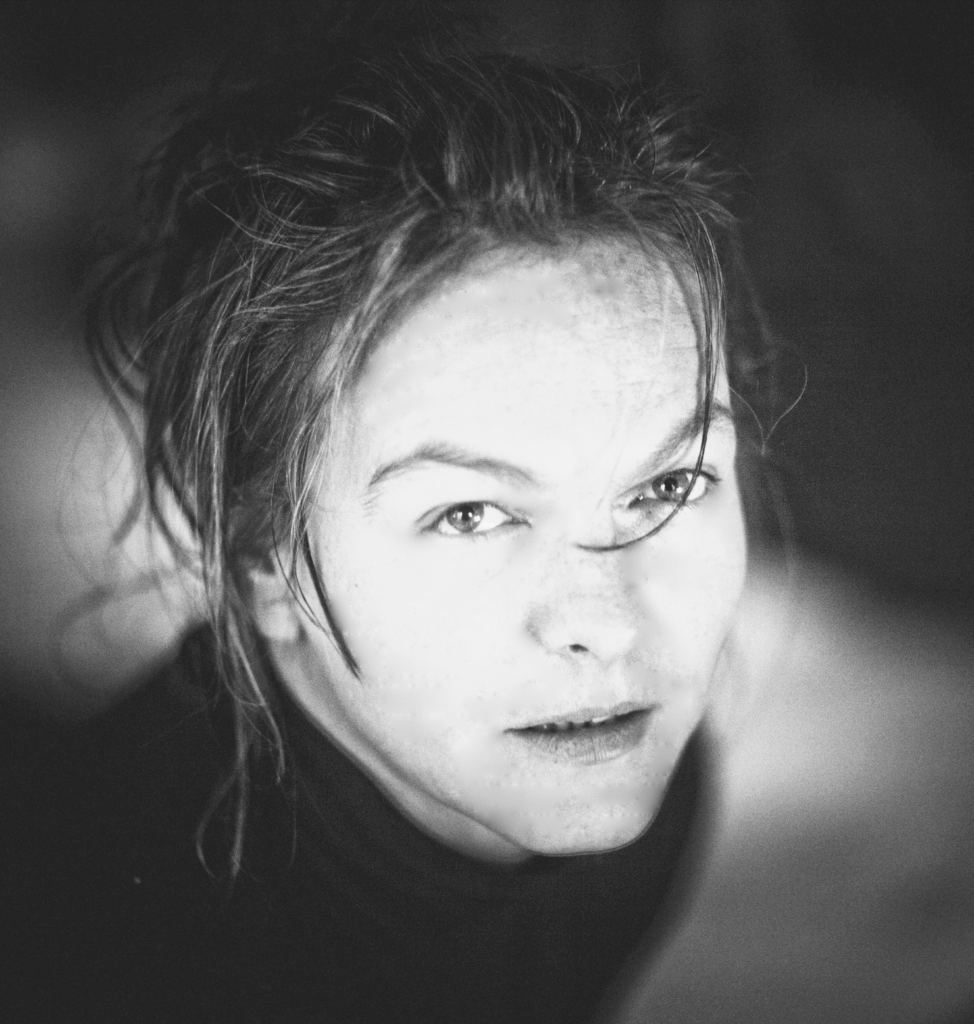
picture ©mel massadian
Born in 1975 in Petrosani, Romania, Călin Peter Netzer is one of the most acclaimed Romanian directors.
In 2003, his first feature film MARIA, was screened at many prestigious festivals, won awards in Locarno (Grand Prix, Leopard for Best Actor and Leopard for Best Actress) and was nominated for the European Film Awards. In 2009, his second feature, MEDAL OF HONOR, was selected to more than 30 international festivals and awarded in Thessaloniki, Turin, Miami, Durres, Los Angeles and Zagreb.
In 2013 CHILD’S POSE won the Golden Bear for the Best Feature Film at the Berlinale, thus becoming the first Romanian film to ever receive this prize.
In 2017 Călin returned to the Official Selection of the Berlinale with ANA MON AMOUR and won the Silver Bear for Outstanding Artistic Contribution. His films have also been very well received by the public, setting box office records in Romania and selling to more than 25 territories.
FAMILIAR, his fifth feature, is selected at Talinn Black Nights 2023.
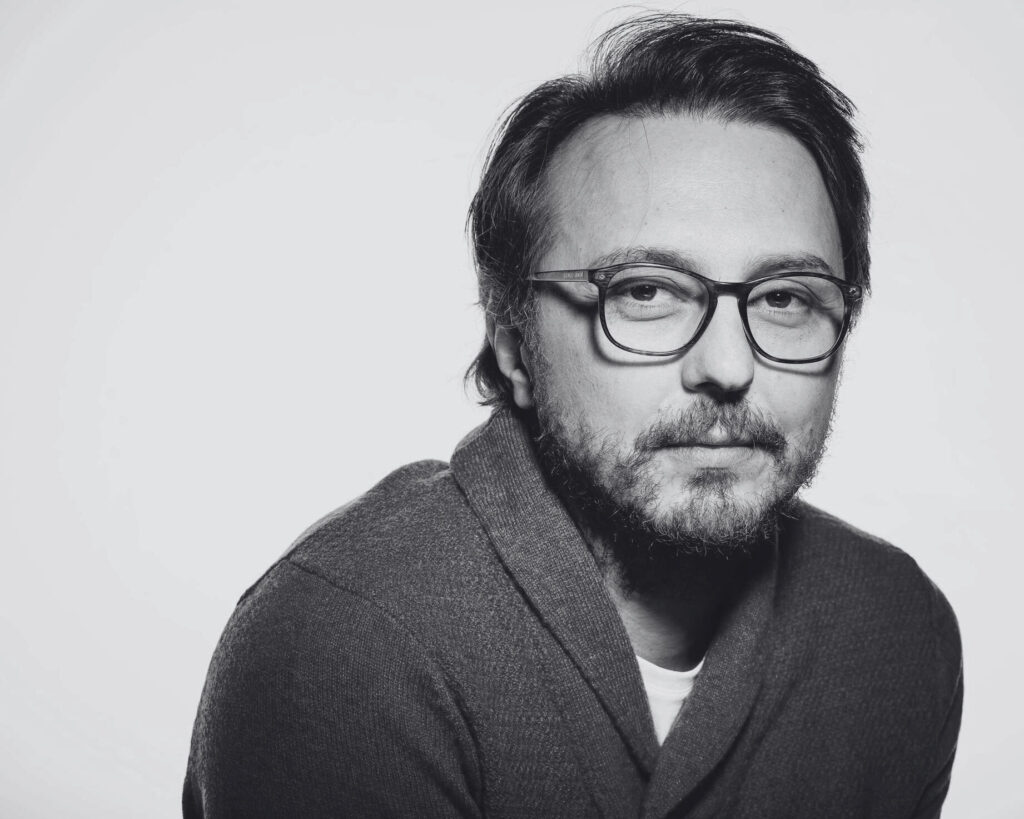
Susana Nobre is a Portuguese filmmaker known for her intimate and socially engaged cinema, often blending fiction and documentary.
Born in Lisbon in 1974, she studied communication sciences in Portugal and later film directing at the London Film School.
Founding member of the independent production company Terratreme Filmes, she has established herself as a key figure in contemporary cinema with several critically acclaimed films, including COMMON GROUND (2018), JACK’S RIDE (2021), and CIDADE RABAT (2023).
Her work is distinguished by a deep exploration of themes such as memory, labor, and everyday life, often intertwined with personal and social narratives. JACK’S RIDE won numerous awards, solidifying her presence on the international scene, while CIDADE RABAT was particularly praised for its sensitivity, earning recognition at the Berlin Film Festival as well as at Caminhos do Cinema Português.
Through her films, Nobre brings to light both intimate and collective stories, thus enriching the landscape of Portuguese and global cinema.
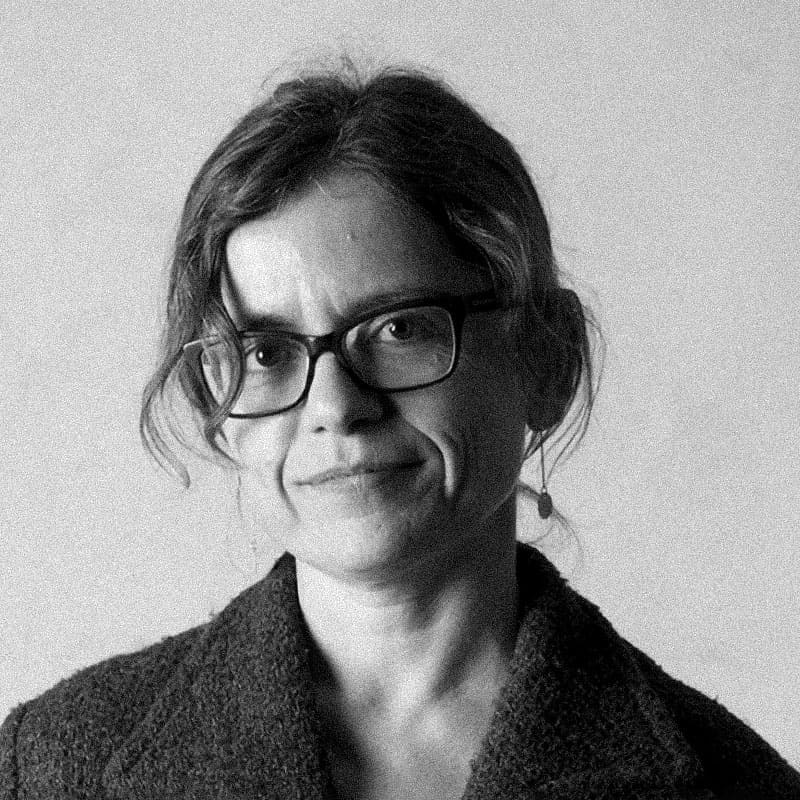
Valérie Osouf is a French filmmaker and visual artist whose work explores the intersections of cinema, politics, and colonial memory.
After living for nearly a decade in Senegal, where she directed her first 16mm film, Sans Commentaire, le pays où l’on n’arrive jamais (1996), she co-directed Cameroon: Autopsy of Independence (2008, Audience Award – Pessac History Film Festival), L’Identité nationale (2012), a documentary on the contradictions of French republican universalism, and Sissako: Beyond Territories, a filmmaker’s portrait.
She has also directed Je te le rappelle, tu t’en souviens (2014) and an international portrait of Abderrahmane Sissako, co-founded Granit Films, and taught at the Beijing Film Academy and La CinéFabrique (Lyon).
As a curator, she co-created Tigritudes with Dyana Gaye, a landmark programme of 128 Pan-African and Afro-diasporic films (Forum des Images, Tate Modern, BFI London, Johannesburg, Kinshasa, etc.).
Since 2021, she has been a member of the collective School of Mutants, whose projects — presented at the Berlin Biennale, Kaunas Biennial, Glasgow International, Raw Material Company and La Becque, amongst other venues — explore the relations between education, urbanism and postcolonial futures.
She is currently in postproduction on her third feature, Because the Night (Vers la Nuit), a nocturnal road movie shot in Kigali, continuing her investigation into how history, control and freedom inhabit bodies, spaces and encounters.
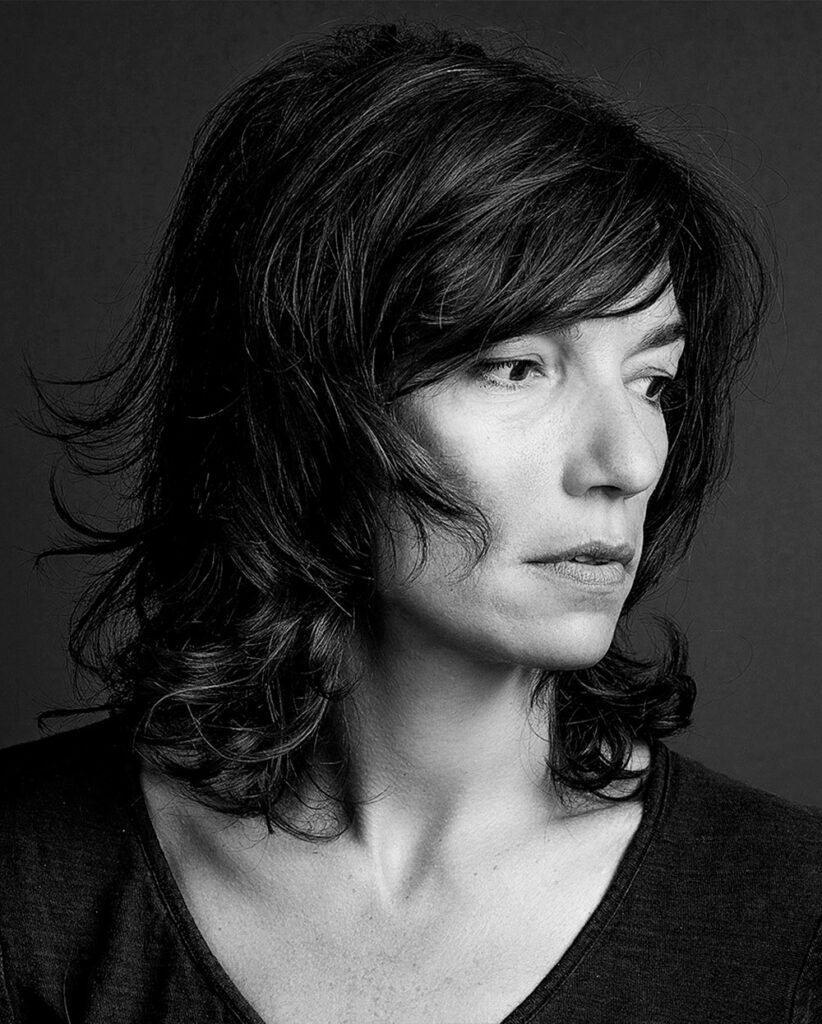
Adina Pintilie is a filmmaker, visual artist, and curator based in Germany and Romania. On the fluid border between reality and fiction, her works emerge from artistic research processes with a profound social impact, standing out through radical aesthetics and a bold uncompromising exploration of the human psyche.
Her feature film Touche me not won the Golden Bear at the 2018 Berlinale, was nominated for the European Discovery Award at the European Film Academy Awards, and was released theatrically in over 40 territories. It screened in major festivals and cultural institutions such as MoMA New York, ICA Institute of Contemporary Art London, BOZAR Bruxelles, BFI London, IDFA Amsterdam, Toronto Film Festival, Viennale, Harvard Film Archive, Karlovy Vary, Sydney Film Festival, and many others. It was positively reviewed in the New York Times, Hollywood Reporter, Indiewire, Los Angeles times, Sight & Sound, Télérama, Les Inrockuptibles, Die Welt, Die Zeit, and many others.
Her work Don’t get me wrong premiered in Locarno 2007 – Filmmakers of the Present Competition, won the Golden Dove Award at Dok Leipzig and screened in over 50 international film festivals such as: Thessaloniki, Montpellier, Trieste, Namur, Documenta Madrid, Munchen, Moscow, Sarajevo, Warsaw, Krakow etc.
Her medium length work Oxygen premiered in Rotterdam Tiger Awards Shorts Competition 2010, screened in festivals like BAFICI Buenos Aires, Montpellier, Thessaloniki, Tampere etc. and was nominated for the Best Short Film Award at the Romanian Film Industry Awards 2011.
Her work DIARY#2 won the ZONTA Award at Oberhausen International Short Film Festival 2013, while her previous short SANDPIT#186 premiered in Locarno 2008 and won the Runner Up Award at Miami Film Festival 2009, among others.
As guest-artist / tutor, Adina Pintilie held masterclasses, workshops and lectures at universities and events such as KHM Academy of Media Arts Cologne, Berlinale Talents, Stockholm University of the Arts, York University Toronto, National University of Drama and Film Bucharest, SOURCES 2, Tehran Film Festival etc.
She has served as jury member at festivals and industry events such as Berlinale, Karlovy Vary, Goteborg Film Festival, Torino Filmlab, IDFA Amsterdam, Oberhausen, Dok Leipzig, Tampere, Lisbon etc.
She is a graduate of the National University of Drama and Film Bucharest – Cinema Department.
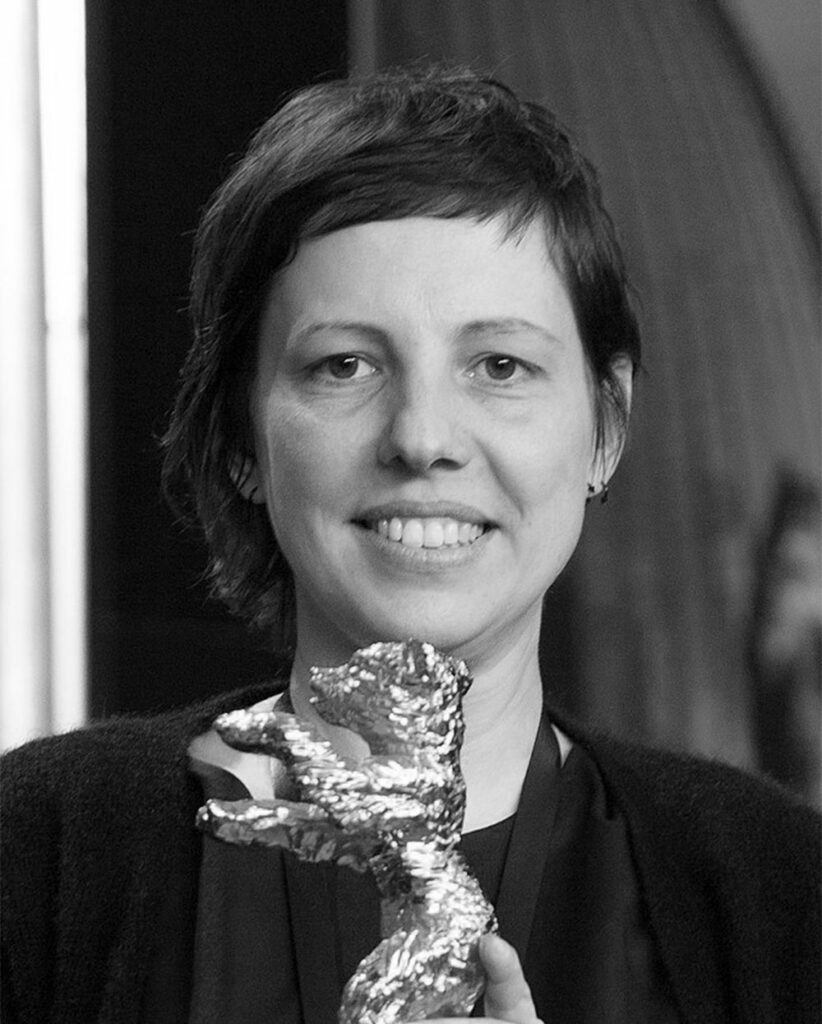
Łukasz Ronduda (born in 1976) is a Polish director, writer, art historian, and curator at the Museum of Modern Art in Warsaw. With a PhD in Arts, Ronduda is also an academic lecturer and a graduate of the Andrzej Wajda Master School of Directing. His diverse background in film and the arts is reflected in his multidisciplinary approach to filmmaking.
In 2015, his work THE PERFORMER won the Special ‘THINK’ Award at the Berlinale Film Festival and competed in the Films on Art International Competition at the New Horizons Film Festival. The film also featured in the Visions Apart Competition at the Polish Film Festival in Gdynia in 2015 and was shown at the 44th International Film Festival Rotterdam in the Signals section.
Łukasz Ronduda’s films are known for their unique blend of art and cinema, often reflecting his deep engagement with contemporary art and his curatorial expertise. His work explores the intersection of different art forms, and he is recognized for his thoughtful approach to both narrative and visual storytelling.
In 2017, Ronduda directed A HEART OF LOVE, which premiered at the International Film Festival Rotterdam and was showcased at the Berlin International Film Festival under the Forum Expanded section. The film also competed in the International Competition at the New Horizons Film Festival, further establishing Ronduda’s reputation in the international film circuit.
Ronduda also directs documentaries. His recent documentary film, Rave, was shown at CPH:DOX Festival in 2025 and was awarded at Millennium Docs Against Gravity Festival in 2024.
Ronduda’s most recent film, ALL OUR FEARS (2021), garnered critical acclaim, winning five awards at the Polish Film Festival in Gdynia, including the prestigious Golden Lions for Best Picture and Best Cinematography. The film continued to receive recognition with seven nominations at the Polish Film Awards (Eagles) in 2022, including Best Picture, Best Director, Best Screenplay, and Best Cinematography.
He is currently developing BLACK MADONNA, based on the true story of a Black general in the Polish Legions who was sent by Napoleon to suppress the uprising of former slaves in Haiti. The project is written with Łukasz Czapski and co-produced by Lava Films (PL), Gaïjin and Aldabra (FR).
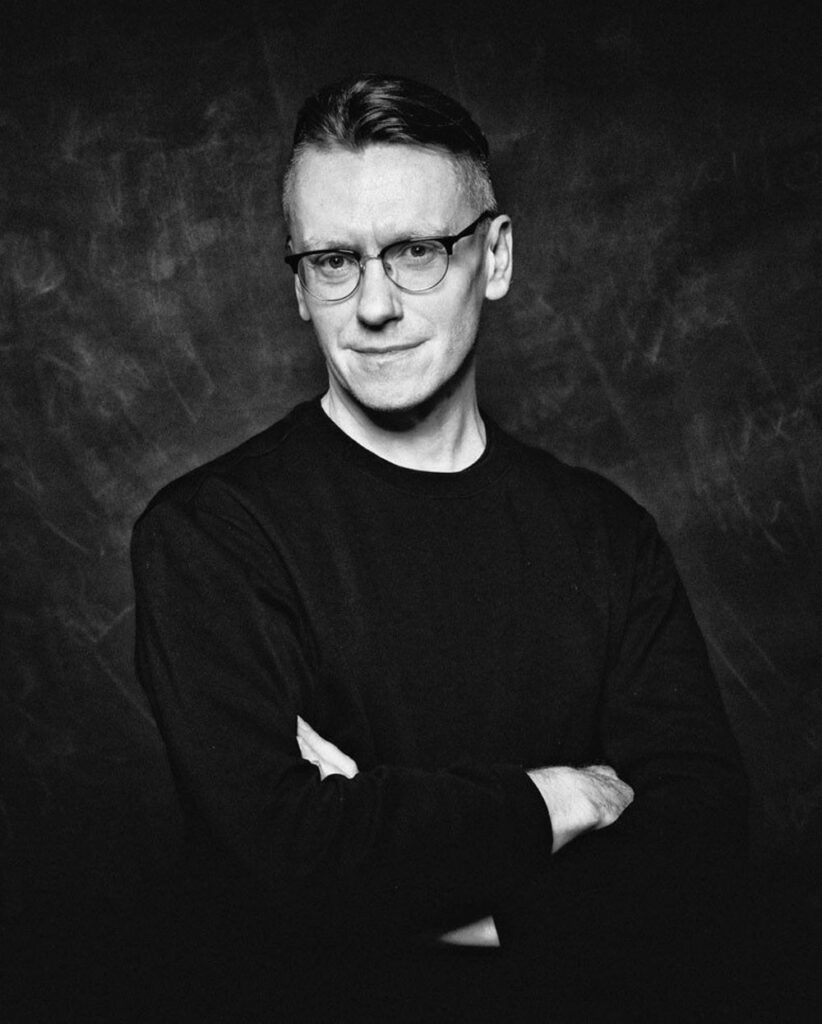
Marcela Said is a Chilean-French filmmaker known for her incisive exploration of Chile’s socio-political landscape, blending documentary and fiction to examine themes of power, memory, and historical trauma.
Born in Santiago in 1972, she studied aesthetics at the Pontifical Catholic University of Chile and later earned a master’s degree in media and languages from the Sorbonne in Paris.
Said began her career with politically charged documentaries such as I Love Pinochet (2001) and El Mocito (2011), the latter focusing on a former torturer from Chile’s military dictatorship. Her first fiction feature, El Verano de los Peces Voladores (The Summer of Flying Fish, 2013), premiered at the Directors’ Fortnight at Cannes, depicting the tense coexistence between Chileans and Mapuches.
Her second feature, Los Perros (Mariana, 2017), was selected for the Cannes Critics’ Week and won the Best Film award in the Horizontes Latinos section at the San Sebastián Film Festival. The film delves into the legacy of impunity among Chile’s elite, particularly focusing on a former military officer involved in human rights abuses.
Marcela Said is writing her third feature film with Gonzalo Maza, The Hunt for the Puma. She has also directed several episodes of Narcos México (2019), Lupin (2021), Gangs of London (2022), and Ourika (2024).
Marcela Said’s work is characterized by its unflinching examination of Chile’s historical and social complexities, offering a nuanced perspective on the nation’s ongoing struggles with its past.
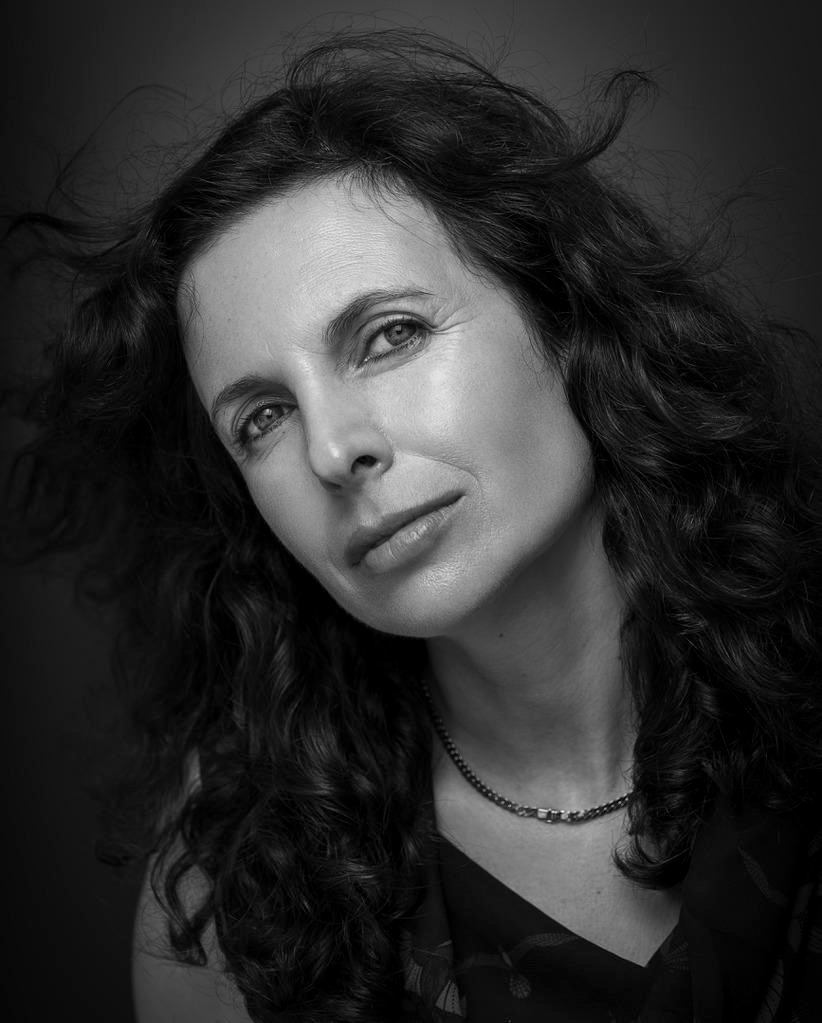
Petr Vaclav is a Czech-French filmmaker known for his poignant and socially engaged cinema.
Born in Prague in 1972, he studied at the Film and TV School of the Academy of Performing Arts in Prague (FAMU) and later attended La Fémis in Paris, followed by a residency at the Villa Medici. He has been living in France since 2003 and holds dual Czech and French citizenship.
Vaclav’s debut feature, Marian (1996), won the Silver Leopard at the Locarno Film Festival and garnered several other international awards. His subsequent films include Parallel Worlds (2001), The Way Out (2014), and We Are Never Alone (2016), each exploring themes of social marginalization and personal struggle. We Are Never Alone received the Tagesspiegel Audience Award at the Berlin International Film Festival.
In 2015, he directed Confessions of a Disappeared (Confession d’un disparu), which won the FIPA d’Or in 2016.
In 2022, Vaclav directed Il Boemo, a biographical film about Czech composer Josef Mysliveček. The film premiered at the San Sebastián International Film Festival and was selected as the Czech entry for Best International Feature Film at the 95th Academy Awards.
Vaclav’s work is characterized by its focus on marginalized communities and its exploration of complex social issues, often through intimate and character-driven narratives.
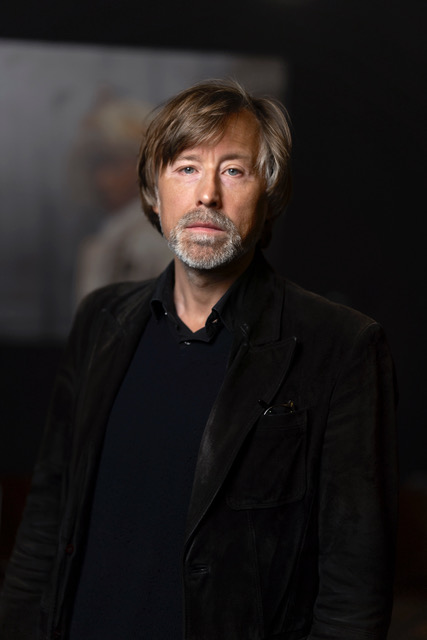
Eirini Vianelli (1985) is an award winning director / animator based in Athens Greece.
She studied Graphic Design (BAHons) at the University of the Arts London (Camberwell) in 2007 and received an MFA in Experimental Animation from the California Institute of the Arts in 2017. She is an Onassis Foundation Scholar.
Her short film Icebergs was Oscar qualified for 2018 after winning best animation short in San Francisco Film Festival. In 2018 she created the animation that works as a set for the Greek National Opera show of Lena Platono’s the Emperor’s Nightingale. Since then she has continued her work with the GNO with the Animal Assembly and Don Quichote ballet, while continuing to develop her personal films.
In 2018 she became an ARTWORKS fellow.
She works independently as an animator and director in films, music videos and commercials.
She is currently writing her first animated feature film, HUMAN NEGLICENCE, with Andrew Gilchrist, and the support of Efthymis Filippou (The Lobster, Kind of Kindness, Canine…). The project is co-produced by Heretic (GR), Gaïjin, Lava Films (PL), Foliascope (FR), and WJT Studio (PL).
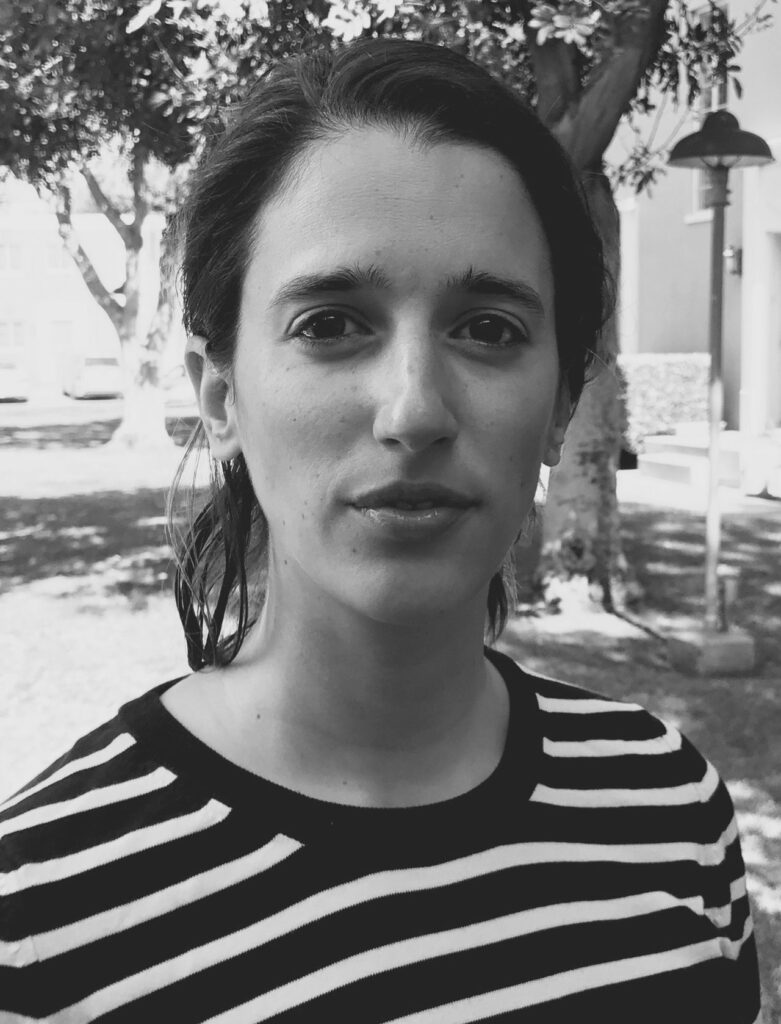
Said Zagha received his BA in English and Film from Ohio’s Kenyon College in 2011.
His debut narrative short film, Five Boys and a Wheel (2016), stars the acclaimed Palestinian actor Ali Suliman. It was shot in Aqaba, Jordan, with support from the Royal Film Commission and private Palestinian contributions. The film premiered at the Dubai International Film Festival, after which it went on to play at over 35 festivals worldwide. It is distributed by MAD Solutions and has won top awards at festivals in Mexico, Algeria, and Oman. With support from the Palestinian Ministry of Culture and the Al-Mawred Al-Thaqafi organisation, Said has just finished his upcoming short film, Lovesick in the West Bank.
He is also currently developing his first feature film, Weedestine, which participated in the Mediterranean Film Institute’s development program, the Med Film Factory, DFI’s producer’s lab and Chabaka at the Carthage Film Festival.
